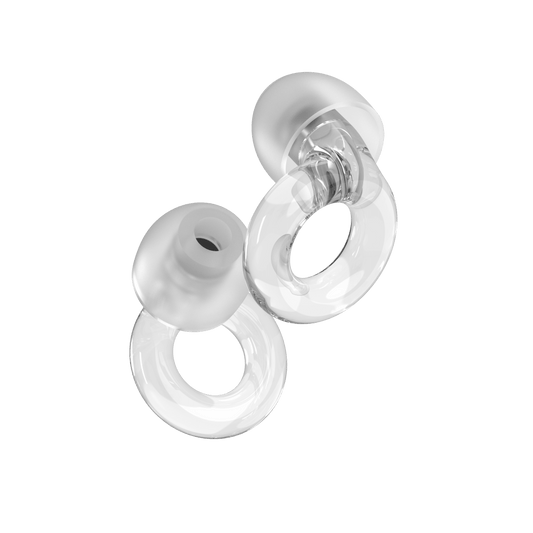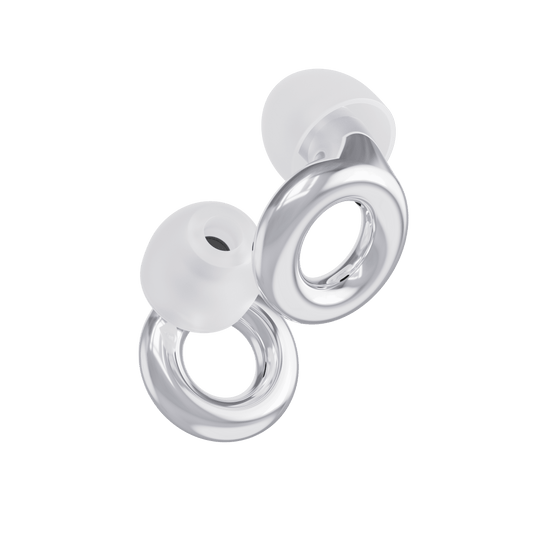There are times when it seems impossible to escape excessive noise.
Whether it’s the rumble of roadworks outside your house, screeching police car sirens whizzing past you on your evening stroll, or just the general clang and clatter of daily life.
But to an extent, you can generally protect yourself when you’re in your own environment. Or at the very least, you may be able to avoid situations where you’ll be unnecessarily exposed to harsh levels of noise.
This means that you can keep a close eye (or ear) on your noise exposure levels. Helping to keep your hearing healthy and your mind clear and happy.
But what about noise levels that you can’t control? And what about environments that it’s necessary for you to enter – such as your workplace?
In this article, we’ll take you through the harmful effects of noise in the workplace, as well as how noise can affect you, and what you can do to reduce noise hazards in the workplace.


How can noise negatively affect you?
Noise isn’t just a minor annoyance.
In fact, various studies have shown that excessive levels of noise in the workplace can cause mental fatigue that can impair your judgment, interfere with communication and concentration, and reduce your morale.
But it doesn’t just affect you mentally.
It can also trigger physiological stress issues such as an increased heart rate and spikes in blood pressure. And prolonged exposure to high noise levels can bring about permanent issues such as tinnitus and/or hearing loss.
Once your hearing has been damaged, the further effects can be profound. You may struggle to hear high frequencies, understand people when they’re speaking to you, and impair your overall communication abilities.
But the effects of excessive noise aren’t just limited to hearing issues and increased blood pressure. Environmental noise can also be a common cause of sleep disturbance. People may experience increased difficulty to fall asleep, an inability to stay asleep, and waking up earlier than they need to.
This reduction in the depth and quality of your sleep schedule can severely impair a person’s ability to concentrate, rest and recuperate, and can even affect their mood.


Can white noise damage your hearing?
Many people swear by white noise as a way to cancel out exterior noise, which in turn helps them to fall asleep, and also helps them concentrate.
And it’s true that people can experience a wide range of benefits from utilizing white noise to mask noise pollution, especially those who use the effects of white noise in the workplace or live in busy areas that experience high sound levels.
However, as with any form of noise, white noise can still have a negative effect on your hearing. Especially with particularly loud or prolonged exposure at certain frequencies and decibels.
If you are a frequent user of white noise, be sure to set the volume at a safe level, and make sure that the source of the white noise is placed well away from you whilst you are using it. This is especially important if you use it whilst sleeping.
What is an acceptable noise level in the workplace?
Officially, the accepted workplace noise level varies from country to country. For example, in the UK, the level at which employers have to provide their staff with hearing protection is a daily or weekly average exposure of 85 dB.
And although the limits do vary, this rating of 85 dB is the most generally accepted standard of a time-weighted average. Anything above this limit of noise pollution in the workplace will start to put serious pressure on your eardrums, the overall health of your ears, and your mental well-being.
But whilst these are government regulations, it’s down to your personal preference when it comes to what noise levels you are willing to tolerate. It is simply not worth risking your physical and mental health by unnecessarily exposing yourself to high levels of noise for your job.
Earplugs to use in the workplace
What are staff solutions for noise reduction in the workplace?
There are various ways that both staff and employers can help to reduce the negative effects of noise in the workplace.
Let’s take a look at some of the best strategies:


Creating social spaces
It may seem strange to suggest creating a social area as a way to reduce noise, and it can even seem counterintuitive when the whole point is about reducing noise in the workplace.
But the point of creating these spaces where people can gather and socialize is you’re moving the noise away from the main area of work.
This way, the hubbub of social chatter will steer clear of the main workspace and instead move to a separate space, leaving those who are working to get on with their tasks in relative peace and quiet.
Plus, these breakout rooms are also a great way to encourage a social atmosphere and improve morale and communication.
So really it’s a win for everyone.
Built-in acoustic or noise-absorbing features
When it comes to workplace noise, it’s sometimes completely unavoidable – especially if you work in industries such as manufacturing or construction. But that doesn’t mean people should have to just put up with it, suffer through their working days, and potentially give themselves long-lasting health implications.
Particularly effective in noisy office spaces, acoustic and noise-absorbing features can make a huge difference to the sound levels. Whether that’s features that have been architecturally built into the building itself, or acoustic panels, artwork, screens, or foam board that can be strategically placed throughout a space.
Even something as simple as laying down rugs or putting curtains on the windows can help to decrease the levels of noise throughout the building.
Designating quiet concentration spaces
There is a trend going on in modern office spaces to have an open-plan layout to boost communication and collaboration. While open-plan office environments have a wide range of benefits, it can mean that some people may struggle without a quiet space to clear their minds and concentrate on their work.
By designating certain areas or rooms in an office space that are purely for quiet contemplation or work, you can benefit from a break from the hustle and bustle of a busy workplace.

Wearing earplugs
Earplugs are a quick and easy way to reduce the effects of excessive noise in the workplace. While they don’t eliminate noise entirely, they can reduce the decibel levels that your eardrums are exposed to – giving you the protection you need to keep your ears fit and healthy.
So for those who want to take the health of their ears into their own hands, earplugs offer a viable and effective solution.
How can Loop Earplugs reduce the impacts of workplace noise?
Loop Earplugs are a great way to take your world of sound into your own hands. Our Experience, Quiet, and Experience Plus (Pro) can help you to reduce noise by up to 24 decibels, giving you some much-needed peace, quiet, and control over your world of sound.
Our earplugs are perfect for anyone who is dealing with noise sensitivity, any form of neurodivergence, misophonia, or just for anyone who just wants to live life at their own volume.
Don’t Let Your Life Be Ruled By Noise
When your place of work is prone to high levels of noise, your everyday routine can start to become stressful and unpleasant, especially if you deal with noise sensitivities or misophonia.
It’s important to make sure that you aren’t suffering, mentally or physically, just to work for a living. You deserve to be just as safe and comfortable in your place of work as you are in your own home – so don’t be afraid to make the necessary adjustments or changes to ensure that you are living your best life, and your ears are protected from harm.
To find out more about how Loop can help you overcome the effects of noise in the workplace, make sure to come and check out our range of noise-reducing earplugs.

Which Loop Earplugs are right for me?
People wear Loops for live music and noise sensitivity, parenting and sleep. Use this guide to determine which Loops ...

How To Deal With Misophonia At Work: Our Top Tips
Do you have a reduced tolerance to certain sounds, otherwise known as misophonia? Hopefully our blog on common miscon...

Understanding The Relationship Between Noise and Concentration
Noise and concentration have a complicated relationship. We’ve all been there, it’s time to concentrate on important ...
















